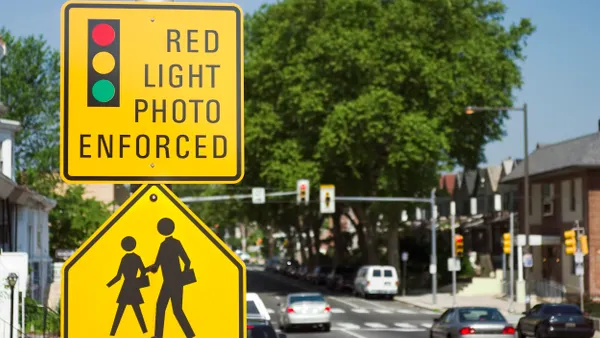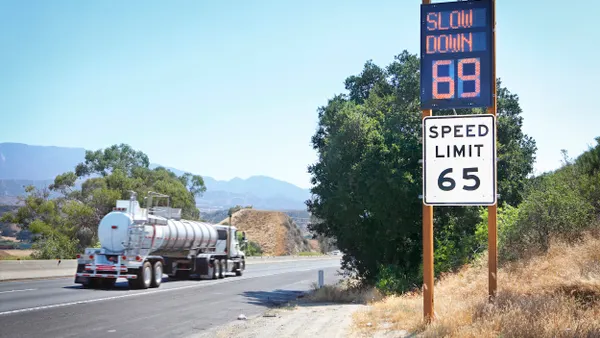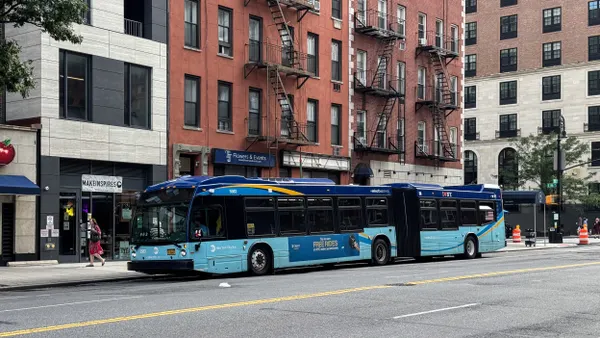Dive Brief:
- Avis is testing a fleet of 5,000 connected cars in the greater Kansas City, MO area, according to Reuters and others. Its first ever "Mobility Lab" will test vehicles at more than 20 car rental locations in Kansas City.
- The vehicles being tested will use wireless technology to connect to the internet, other vehicles and the car rental company's central network. Avis will share real-time data with the city so it can hone electronic traffic flow models and improve car renters' experiences.
- Customers will be able to control their whole rental experience from a smartphone, including making a reservation and unlocking the vehicle's doors.
Dive Insight:
The connected vehicle lab allows Avis to collaborate directly with municipalities for a mutually beneficial system. Kansas City, for example, will be able to collect data from the connected fleet that will give more insight into traffic volume and road conditions. This program will continue Kansas City's march toward smart city status and modernization, complementing efforts such as its smart streetcars and traffic lights.
Avis' CEO believes incorporating smart technologies will not only increase customer satisfaction, but it will also reduce operational costs over time. Operational efficiency could increase by obtaining real-time inventory counts, mileage management and automatic maintenance alerts.
Innovating and upgrading its business model could help Avis stand out among the competition in an industry where investors currently are wary. Concern about major car rental companies' futures is based in part on pricing and overcapacity. The ride-sharing boom has also cut into rental companies' business. But the connected vehicles make renting and operating a car more convenient for customers, which has the potential to attract business.
Avis expects to have 50,000 more connected vehicles in its U.S. fleet by the early part of next year. It aims to make its entire global rental fleet — about 400,000 vehicles in the United States alone — fully connected by 2020.












